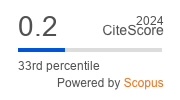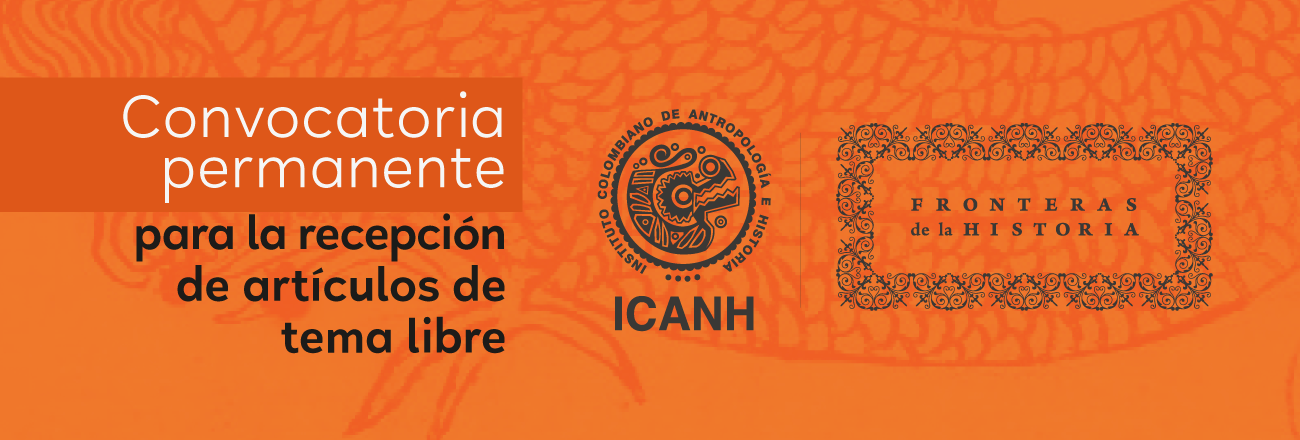Transnational childhoods from postcolonial and decolonial perspectives
Abstract
This paper discusses the thesis that the existence of children, as well as the ideas and concepts of child-hood that have emerged in Europe since the late Middle Age, are closely linked to the colonization of other parts of the world. Three dimensions of transnationality are identified from postcolonial and decolonial perspectives: Interdependence of the bourgeois childhood project and the colonization of foreign continents; destruction and devaluation of childhoods in the former colonial regions; problematization of the eurocentric-imperial childhood project. The assumption that the childhood pattern created in Europe represents the highest form of civilization and can serve as a global, transnational yardstick is rejected as (post)colonial-imperial presumption.
Downloads
References
Balogapalan, S. (2014): Inhabiting ‘Childhood’: Children, labour and schooling in postcolonial India, Basingstoke y Nueva York, Palgrave Macmillan.
Brand, U. y M. Wissen (2017): Imperiale Lebensweise. Zur Ausbeutung von Mensch und Na-tur im globalen Kapitalismus, Múnich, oekom.
Cannella, G. S. y R. Viruru (2004): Childhood and Postcolonization: Power, Education, and Contemporary Practice, Nueva York y Londres, Routledge-Falmer.
Comaroff, J. y J. Comaroff (2008): “The Colonization of Consciousness”, en M. Lambek, Ed., A Reader in the Anthropology of Religion, Malden, MA, Blackwell, pp. 464-478.
Cregan, K. y D. Cuthbert (2014): Global Childhoods, Los Angeles, Sage.
De Sousa Santos, B. (2009): Una epistemología del Sur: la reinvención del conocimiento y la emancipación social, Buenos Aires, Siglo XXI.
Emond, R. y F. Esser (2015): “Introduction: Transnational childhoods”, Transnational Social Review, 5(2), pp. 100-103.
Ennew, J. (2002): “Outside childhood: street children’s rights”, en B. Franklin, Ed., The New Handbook of Children’s Rights, Londres & Nueva York, Routledge, pp. 388-403.
Gaitán, L. y M. Liebel (2011): Ciudadanía y Derechos de Participación de los Niños, Madrid, Síntesis.
Gstettner, P. (1981): Die Eroberung des Kindes durch die Wissenschaft. Aus der Geschichte der Disziplinierung, Hamburgo, Rowohlt.
Habermas, J. (1981): Teoría de la Acción Comunicativa, Madrid, Taurus.
Hegel, G. W. F. ([1822]1989): Lecciones sobre la filosofía de la historia universal, Madrid, Alianza.
Katz, C. (2004): Growing Up Global: Economic Restructuring and Children’s Everyday Lives, Minneapolis, University of Minnesota Press.
Katz, C. (2012): “Work and Play: Economic restructuring and children’s everyday learning in rural Sudan”, en G. Spittler & M. Bourdillon, Eds., African Children at Work: Working and Learning in Growing Up for Life, Zurich y Berlín, LIT, pp. 227-248.
Kipling, R. (1899): The White Man’s Burden. Disponible en web: http://www.loske.org/html/school/history/c19/burden_full.pdf
Lee, N. (2001): Childhood and society: Growing up in an age of uncertainty, Buckingham y Philadelphia, Open University Press.
Lessenich, S. (2017): Neben uns die Sintflut. Die Externalisierungsgesellschaft und ihr Preis, Berlín, Hanser.
Liebel, M. (2006): Malabaristas del siglo XXI. Los niños y niñas trabajadores frente a la globa-lización, Lima, Ifejant.
Liebel, M. (2018): “Más allá del paternalismo. Hacia una protección participativa y una partici-pación protagónica”, en A. Llena Berñe & A. M. Novella Cámara, Eds., Impulsar la Participa-ción Infantil. Los consejos de infancia y adolescencia, Barcelona, Editorial GRAÓ, pp. 51-83.
Liebel, M. (2019): Infancias dignas, o cómo descolonizar las infancias, Lima, Ifejant; Buenos Aires, Editorial El Colectivo; México, Bajo Tierra Editores.
Locke, J. ([1690]1999): Ensayo sobre el entendimiento humano, México, Fondo de Cultura Económica.
Mehta, U. S. (1999): Liberalism and Empire: A Study in Nineteenth-Century British Liberal Thought, Chicago y Londres, University of Chicago Press.
Mendel, G. (1971): Pour décoloniser l’enfant. Sociopsychanalyse de l’autorité, Paris, Payot.
Mendel, G. (1974): La decolonización del niño, Barcelona, Ariel.
Milanović, B. (2012): The Haves and the Have-Nots: A Brief and Idiosyncratic History of Global Inequality, Nueva York, Basic Books.
Osterhammel, J. (2005): Colonialism: A Theoretical Overview, Princeton, NJ, Markus Wiener Publishers.
Pavez-Soto, I. (2013): “Los significados de ‘ser niña y niño migrante’: conceptualizaciones desde la infancia peruana en Chile”, Polis – Revista Latinoamericana, 35. Disponible en web: https://journals.openedition.org/polis/9304 [Consulta: 15 de mayo de 2019].
Piketty, T. (2014): El Capital en el Siglo XXI, Madrid, Fondo de Cultura Económica de España.
PNUD (1999): Informe sobre Desarrollo Humano 1999, Madrid, Mundi-Prensa Libros.
Postman, N. (1988): La desaparición de la niñez, Madrid, Círculo de Lectores.
Pries, L. (2010): Transnationalisierung. Theorie und Empirie grenzüberschreitender Vergesell-schaftung, Wiesbaden, VS Verlag.
Rohr, E. (2013): “La infancia transnacional y el debate en torno a la ‘cadena del cuidado’”, Ecuador Debate. Identidades y diferencias, 88, pp. 169-182.
Rousseau, J.-J. ([1762]1998): Emilio, o De la educación, Madrid, Alianza.
Rumpf, H. (1989): "Ernstes Spiel – Mini-München, etwas anderes als eine Kinderbelustigung“, en G. Grüneisl y W. Zacharias, Eds., Die Kinderstadt. Eine Schule des Lebens. Handbuch für Spiel, Kultur, Umwelt, Hamburgo, Rowohlt, pp. 58-65.
Saavedra, C. M. & S. P. Camicia (2010): “Transnational Childhoods: Bodies that Challenge Boundaries”, en G. S. Cannella y L. Diaz Soto, Eds., Childhoods. A Handbook, Nueva York, Peter Lang, pp. 27-37.
Schibotto, G. (2015): “Saber Colonial, Giro Decolonial e Infancias Múltiples de América Latina”, NATs – Revista Internacional desde los Niños, Niñas y Adolescentes Trabajadores, 25, pp. 51-68.
Stearns, P. N. (2005): Growing Up. The History of Childhood in a Global Context, Waco, TX, Baylor University Press.
Stearns, P. N. (2006): Childhood in World History, Nueva York y Londres, Routledge.
UNICEF (2006): Zur Situation der Kinder in der Welt 2006. Kinder ohne Kindheit, Fráncfort, Fischer.
Walsh, S. (2010): Kipling’s Children’s Literature: Language, Identity and Constructions of Childhood, Farnham, Ashgate.
Wells, K. (2009): Childhood in a Global Perspective, Cambridge, Malden, MA, Polity Press.
Zeiher, H., P. Büchner y J. Zinnecker, Eds. (1996): Kinder als Außenseiter? Umbrüche in der gesellschaftlichen Wahrnehmung von Kindern und Kindheit, Weinheim y Múnich, Juventa.

Esta obra está bajo licencia internacional Creative Commons Reconocimiento-NoComercial-CompartirIgual 4.0.









_18.09_.00_1.png)


















